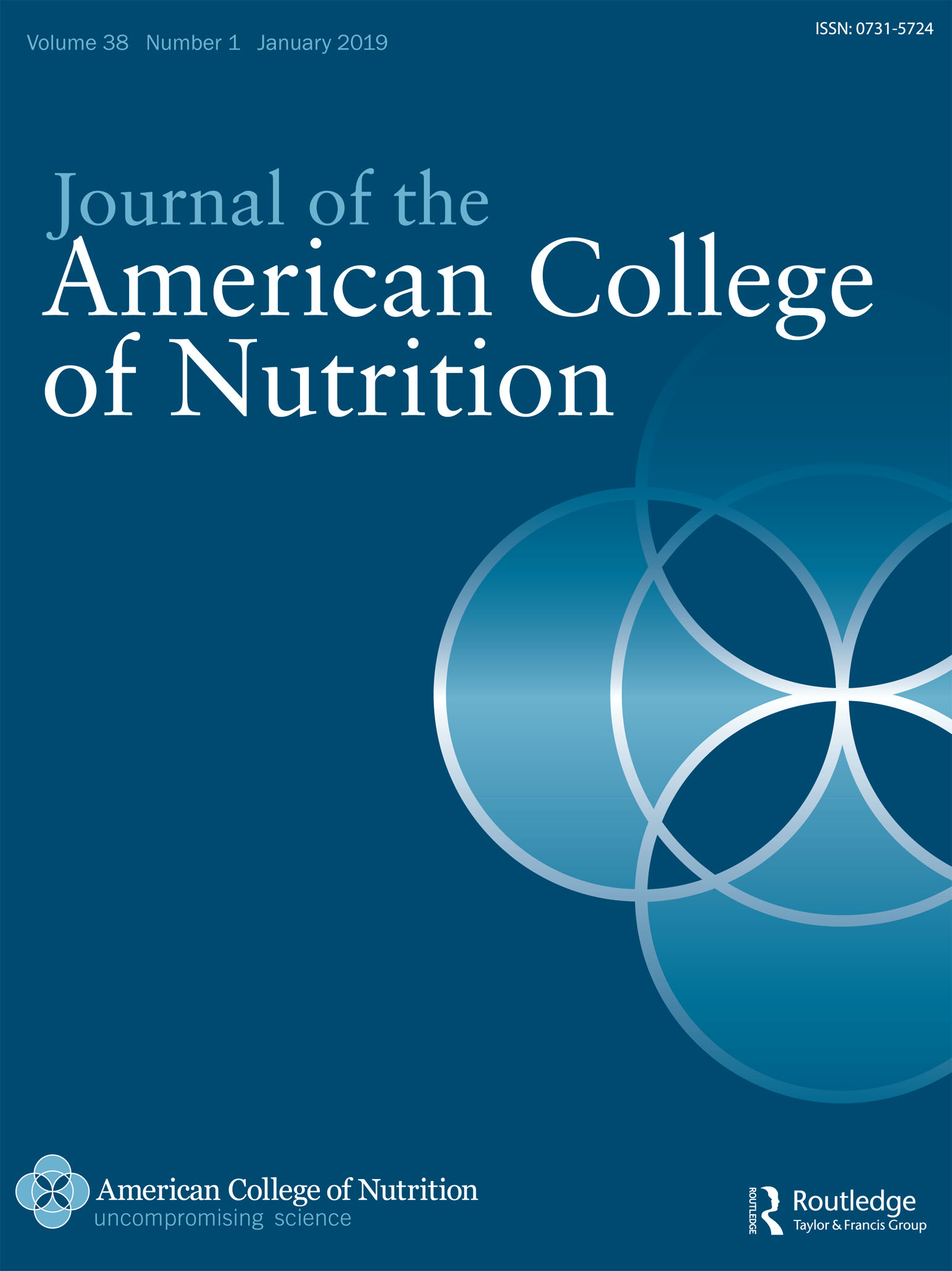Vegetable Oils
How to submit an article:
- Registered users can submit any published journal article that has a unique DOI (Digital Object Identifier) name or link to Research Hub.
- For example, you can paste the full DOI link:
https://doi.org/10.1109/5.771073or just the DOI name:10.1109/5.771073into the field above and click submit. - The person who is first to submit a valid article to Research Hub will forever be credited for it, and every article submission earns you +6 Research Points.
Published research studies are articles that present the findings of original research that has undergone a peer-review process and has been made publicly available in scholarly journals, books or other media.

Different source of commercial vegetable oils may regulate metabolic, inflammatory and redox status in healthy rats
2020 Mar Journal of Functional Foods Gomes SV, Dias BV, Pereira RR, de Pádua Lúcio K, de Souza DMS, Talvani A, et al.
The study found that linseed oil supplementation decreased HOMA-IR and hepatic cholesterol, but increased IL-6 levels; coconut oil supplementation increased glucose, HOMA-IR, cholesterol, and serum triacylglycerol levels, as well as TBARS levels; while sunflower oil supplementation decreased cholesterol and triacylglycerol levels, and also reduced IL-6 and TNF levels, as well as the GSH/GSSG ratio.
Animal Study Metabolism Fatty Acids Redox Process Inflammation
Health Effects of Coconut Oil—A Narrative Review of Current Evidence
2018 Nov 05 Journal of the American College of Nutrition Wallace TC
Limited but consistent evidence supports the topical use of coconut oil for the prevention and treatment of atopic dermatitis and "oil pulling" for preventing dental caries. Coconut oil products may also be beneficial in preventing hair damage due to protein loss during grooming processes and UV exposure. However, limited evidence does not support the use of coconut oil for the prevention or treatment of Alzheimer’s disease, bone loss, or glycemic control. Larger clinical intervention studies are warranted for weight loss and cardiovascular disease. Refined copra oil has a lesser impact on total and LDL cholesterol compared to butter fat but not cis unsaturated vegetable oils. Many claims about coconut oil products are based on animal and/or in vitro studies or studies of purified medium-chain fatty acids, highlighting the need for more human clinical and observational studies.
Review Article Coconut Oil
Omega-6 vegetable oils as a driver of coronary heart disease: the oxidized linoleic acid hypothesis
2018 Sep 26 Open Heart DiNicolantonio JJ, O’Keefe JH
The study concludes that elevated levels of linoleic acid, particularly from omega-6-rich vegetable oils, are positively associated with increased prevalence of diabetes, obesity, asthma, and coronary artery disease. The findings propose a comprehensive theory, the 'oxidised linoleic acid theory of coronary heart disease,' highlighting the role of linoleic acid in initiating the oxidation process of LDL particles, leading to atherosclerosis and cardiovascular risk. The study also suggests the potential use of 9-HODE levels as a novel risk factor for coronary heart disease.
Systematic Review CAD Coronary Artery Disease Linoleic Acid Omega-6 Fatty Acids
Medicines and Vegetable Oils as Hidden Causes of Cardiovascular Disease and Diabetes
2016 Jan Pharmacology Okuyama H, Langsjoen PH, Ohara N, Hashimoto Y, Hamazaki T, Yoshida S, et al.
The study concludes that there is a positive association between CVD and DM, and while different lifestyle modifications can improve clinical marker status in short-term treatments, none have been shown to be effective in improving long-term outcomes.
Clinical Study Type 2 Diabetes Vegetable Oils
Does cooking with vegetable oils increase the risk of chronic diseases?: a systematic review
2015 Apr British Journal of Nutrition Sayon-Orea C, Carlos S, Martínez-Gonzalez MA
The study concludes that the myth that frying foods is generally associated with a higher risk of CVD is not supported by the available evidence, virgin olive oil significantly reduces the risk of CVD clinical events, and high consumption of fried foods is probably related to a higher risk of weight gain.
Systematic Review Extra Virgin Olive OilResearch insights are moderated by the Research Hub team and offer an at-a-glance overview of interesting research findings.
Review Articles
Review articles summarise and critically evaluate the current state of research on a specific topic or field by synthesising multiple primary research studies.

Health Effects of Coconut Oil—A Narrative Review of Current Evidence
2018 Nov 05 Journal of the American College of Nutrition Wallace TC
Limited but consistent evidence supports the topical use of coconut oil for the prevention and treatment of atopic dermatitis and "oil pulling" for preventing dental caries. Coconut oil products may also be beneficial in preventing hair damage due to protein loss during grooming processes and UV exposure. However, limited evidence does not support the use of coconut oil for the prevention or treatment of Alzheimer’s disease, bone loss, or glycemic control. Larger clinical intervention studies are warranted for weight loss and cardiovascular disease. Refined copra oil has a lesser impact on total and LDL cholesterol compared to butter fat but not cis unsaturated vegetable oils. Many claims about coconut oil products are based on animal and/or in vitro studies or studies of purified medium-chain fatty acids, highlighting the need for more human clinical and observational studies.
Review Article Coconut Oil
Omega-6 vegetable oils as a driver of coronary heart disease: the oxidized linoleic acid hypothesis
2018 Sep 26 Open Heart DiNicolantonio JJ, O’Keefe JH
The study concludes that elevated levels of linoleic acid, particularly from omega-6-rich vegetable oils, are positively associated with increased prevalence of diabetes, obesity, asthma, and coronary artery disease. The findings propose a comprehensive theory, the 'oxidised linoleic acid theory of coronary heart disease,' highlighting the role of linoleic acid in initiating the oxidation process of LDL particles, leading to atherosclerosis and cardiovascular risk. The study also suggests the potential use of 9-HODE levels as a novel risk factor for coronary heart disease.
Systematic Review CAD Coronary Artery Disease Linoleic Acid Omega-6 Fatty Acids
Does cooking with vegetable oils increase the risk of chronic diseases?: a systematic review
2015 Apr British Journal of Nutrition Sayon-Orea C, Carlos S, Martínez-Gonzalez MA
The study concludes that the myth that frying foods is generally associated with a higher risk of CVD is not supported by the available evidence, virgin olive oil significantly reduces the risk of CVD clinical events, and high consumption of fried foods is probably related to a higher risk of weight gain.
Systematic Review Extra Virgin Olive OilClinical Trials
Clinical trials are research studies that involve people and are conducted to evaluate the safety and efficacy of new treatments or interventions, such as drugs, medical devices, or behavioural therapies.
Study Protocols
Published study protocols are detailed plans that outline the objectives, methodology, statistical analyses, and organisation of a research study that have been made publicly available for others to review and use as a reference.
Presentation Slides
Executive Summary
Write an executive summary in the form of a blog article on the topic of "Research into Chinese medicine treatment for Vegetable Oils" summarising the research below and using language that can be easily understood by patients and avoiding medical jargon using a professional and caring tone of voice.
Write an executive summary in the form of a blog article on the topic of "Researched Chinese medicine treatments for Vegetable Oils" summarising the research below in an objective and easy to understand way, and using language that can be easily understood by patients. Group the article into Chinese medicine treatments first, followed by nutrition and other treatments. Avoid using medical jargon and use a professional and caring tone of voice.
Write me a concise but easy to understand executive summary on the topic of "Chinese medicine treatments for Vegetable Oils" based on the following research that I will give you. Your summary should be 2 paragraphs long in Australian English spelling and include references to the studies.
Moderation Tools
Topic
Sign In
Users not signed in are limited to viewing the 5 most recent items of content.